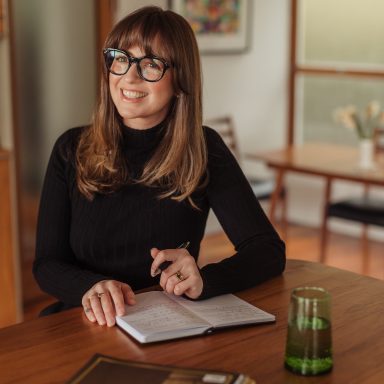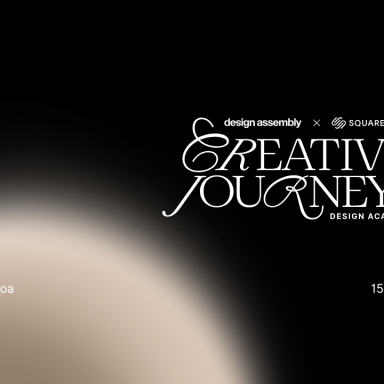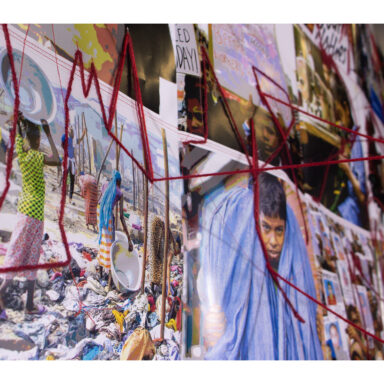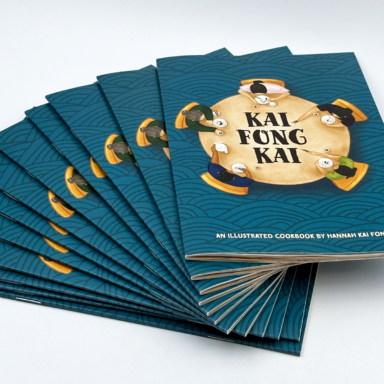5 minutes… with Andy Wright
Design Assembly recently got the opportunity to chat with Andy Wright of Never Not Creative to find out a bit more about his career journey, ongoing research and initiatives to support our industry, creative self care and what the future holds for NNC.
I was first introduced to Andy Wright at The Design Conference in Brisbane. I delivered a keynote inwhich spoke about how my journey with design had been shaped by struggles with mental health and self worth. At the time Andy was working at For the People a celebrated studio he founded in Sydney. Andy was memorable because he was incredibly inspiring, humble and generous sharing that he too recognised the impact of his work on his personal wellbeing at points throughout his career.
Andy later made a move to another company I admired – becoming managing director at Streamtime and shortly there after established Never Not Creative. Andy explained that Never Not Creative began as a headline for the Streamtime website. “Streamtime ensures your work life is Never Not Creative.“ But overtime he “hit on the idea that Never Not Creative could actually be much bigger than a ‘line’.” As it encapsulates what everyone in our creative industry prides themselves on, but at the same time describes the pressure that comes with it.
So the line grew to an important initiative supporting our community with resources and information around wellbeing in design practice.
It’s a place for the creative industry to identify, discuss and come up with solutions for the challenges that we face. “From getting paid properly, to making sure all different kinds of people are well represented and get the same opportunities in the industry, to reducing some of the causes of stress, pressure, burnout to improve the levels of mental health in our sector”
Never Not Creative is a critical initiative that Design Assembly loves. Our team has been binging on the NNC podcasts, values resources like their creative pledge. We respect their research lead initiatives and were thrilled to see Andy cross the ditch to report the findings of their 2018 mentally healthy survey in Christchurch this month.

Thanks for your time Andy, we appreciate that you are incredibly busy! You do so much… Given burnout and selfcare is such an important theme for NNC, what does a typical week (or day) look like for you?
Well, officially I work 4 days a week at Streamtime (project management software for the creative industry). Aaron (the Founder) from Streamtime gives me lots of freedom so I spend about 20% of my time on NNC. Obviously, it makes perfect sense that we’re invested in an initiative that supports the industry we operate in.
You’re right about burnout and self care being key themes. To be perfectly honest, I’d love to say that I have all that tight and tied down. The reality is I don’t. I’m constantly coming up with ideas that I want to implement for NNC and that can often lead to my ‘5th day’ of the week becoming filled with ‘work’.
I think this is the challenge for most of us. If we’re lucky, we’ve found something that gives us meaning and purpose and so work blurs with life. Ultimately, I think this is a good thing, but it makes you much more susceptible to burnout because you throw all of yourself at it without realising the toll that it can take. You just can’t substitute rest, relaxation and looking after yourself – as they say, everything in moderation.
So, a typical day will have work, usually trying to keep an eye on the bigger picture for Streamtime, making sure the team have the space and time that they need, responding to NNC messages and working on collaborations with some of our friends like Unltd, The Design Kids, Everymind and the NNC community on Facebook. Then, there’s juggling the rest of my life – a family with 3 kids. There’s usually a pick-up, drop off, homework, bedtime, bath time, girls football coaching to do!
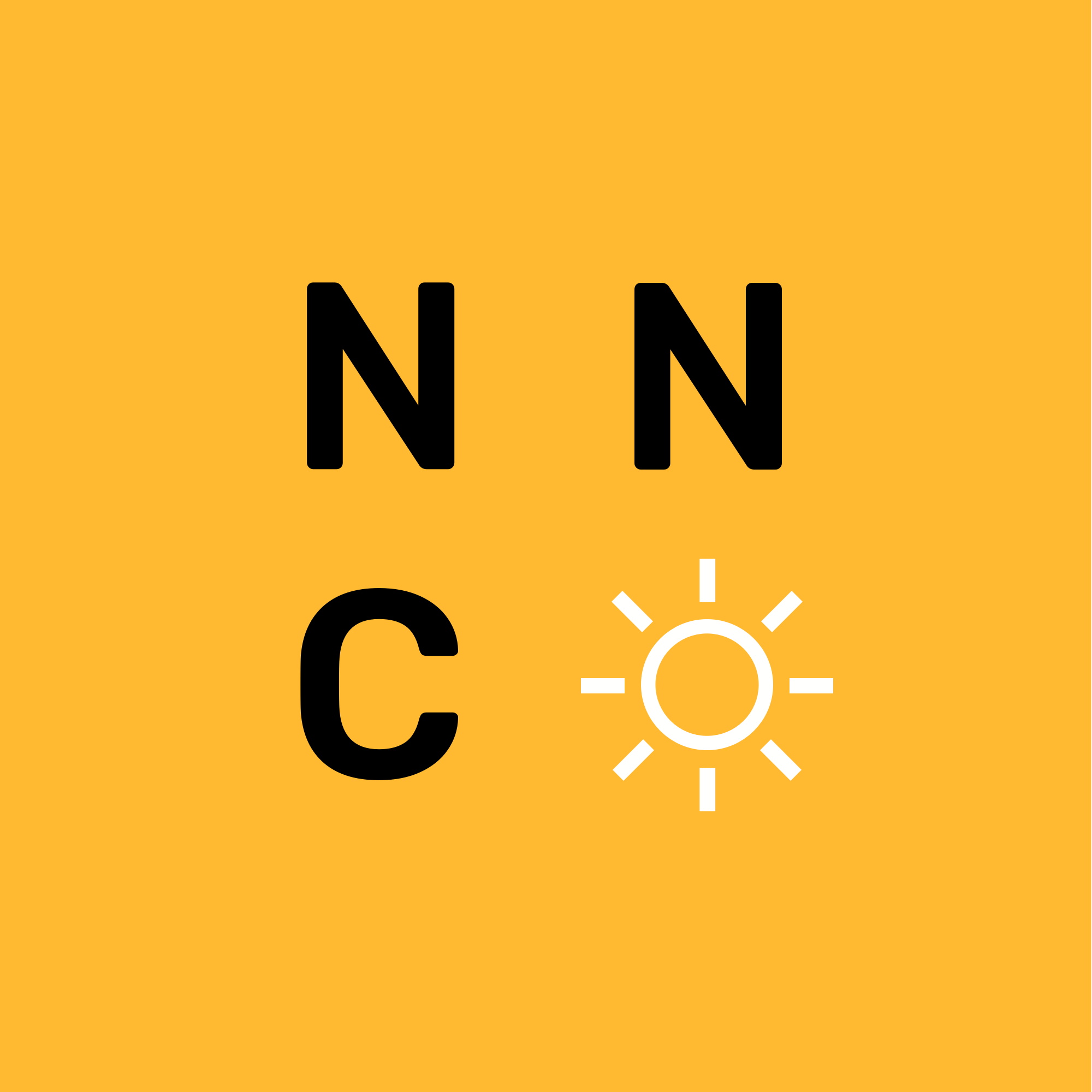
What do you do to keep yourself mentally healthy?
This is such a hard one. It’s usually the part where you would wax lyrical about practicing meditation and chilling out at yoga. Unfortunately, I’ve just never been able to get into those things. The truth is recently, staying mentally healthy has been very hard. I’ve managed to find a good psychologist who helps me keep things in perspective – and when it comes to good mental health I find that’s one of the major battles. It’s easy to think that people or the world(!) are against you. It’s easy to think that nothing is ever going to go right. But, if you can find ways to snap out of that mentality, then those are the ways that can help to keep you happier.
Obviously, there are all the other elements of the puzzle that can play a role – and that’s basically what it is… a giant emotional jigsaw puzzle. Get a good night’s sleep, eat healthily, exercise regularly, don’t drink too much, don’t stay out too late, don’t work too hard, don’t do things that you don’t enjoy, find time to spend with family and loved ones (or spend away from them if it gets too much!) etc. That’s why sometimes it can feel so hard. I know this is the same for everyone, I don’t think I’m special for having to deal with it. We all have our strengths and struggles. Finding this balance is one of my struggles.
I’m terrible at expressing myself to the people that matter most. However, when I make the effort to overcome some of those inhibitions I feel much better. Basically, some days it’s really hard. You just have to keep finding reasons to push yourself forward.
How does Streamtime support NNC & how can designers use Streamtime to help manage our workload and associated stress/pressure?
After the work we did with the mentally healthy survey, we’re now very conscious of how we can build a product that helps and supports our industry vs perpetuating some of the flaws.
We encourage teams to plan their own time out. If you can kick off your week in the right way by starting with a plan, then you have the hope of maintaining some sanity. Of course, that can all go to sh!t by midday on a Monday – but if you can start with a feeling of control it really does help. When I was at For The People, we used Streamtime to view everybody’s ToDo screen (where you plan and track time) at the beginning of the week to understand what we all had on and make adjustments as a team. This helped to make everyone aware if one or two people were under more pressure than others and to share the workload better.
Financial stress is also a major contributor to poor mental health, especially for small business owners. We’re currently working on ways we can better surface projected profit on projects and for a business as a whole. We’re also designing solutions to make it as easy as possible to automate invoicing and encouraging terms that stipulate up-front payment and penalties for delays. Ultimately, the goal is to predict and focus on the future rather than just recording the past. This is very hard – doesn’t mean we won’t have a good crack at it though.
Another initiative that we get great feedback on is our webinars. We run them weekly at 10.30am AEST and while they started out as a demo of particular parts of our product, they’re now morphing into more holistic advice and tricks for how to run teams, projects and more successful creative businesses.
What is the one thing you’d recommend every designer do to prioritise their wellbeing?
Find time to stop and reflect. I think we’re so grateful for when we’re “on a roll” that we want to power through. But then we only stop when we’re out of gas and out of ideas. If you can find a way to stop when you’re at a high, or when you already know what the next idea is or step to take, then you’re going to make it easier and more enjoyable to pick up where you left off tomorrow.
You need to find ways to look forward to the next day, or the next time you sit down with a notebook or at your computer. If you find yourself approaching work with a sense of dread, or even sadness, you need to change something. We all have off-days, but if your off-days become off-weeks, change what you’re doing, how you’re approaching work, or who you’re working with. I think finding things that you can feel in control of go a long way to finding a sense of purpose and meaning in your work.
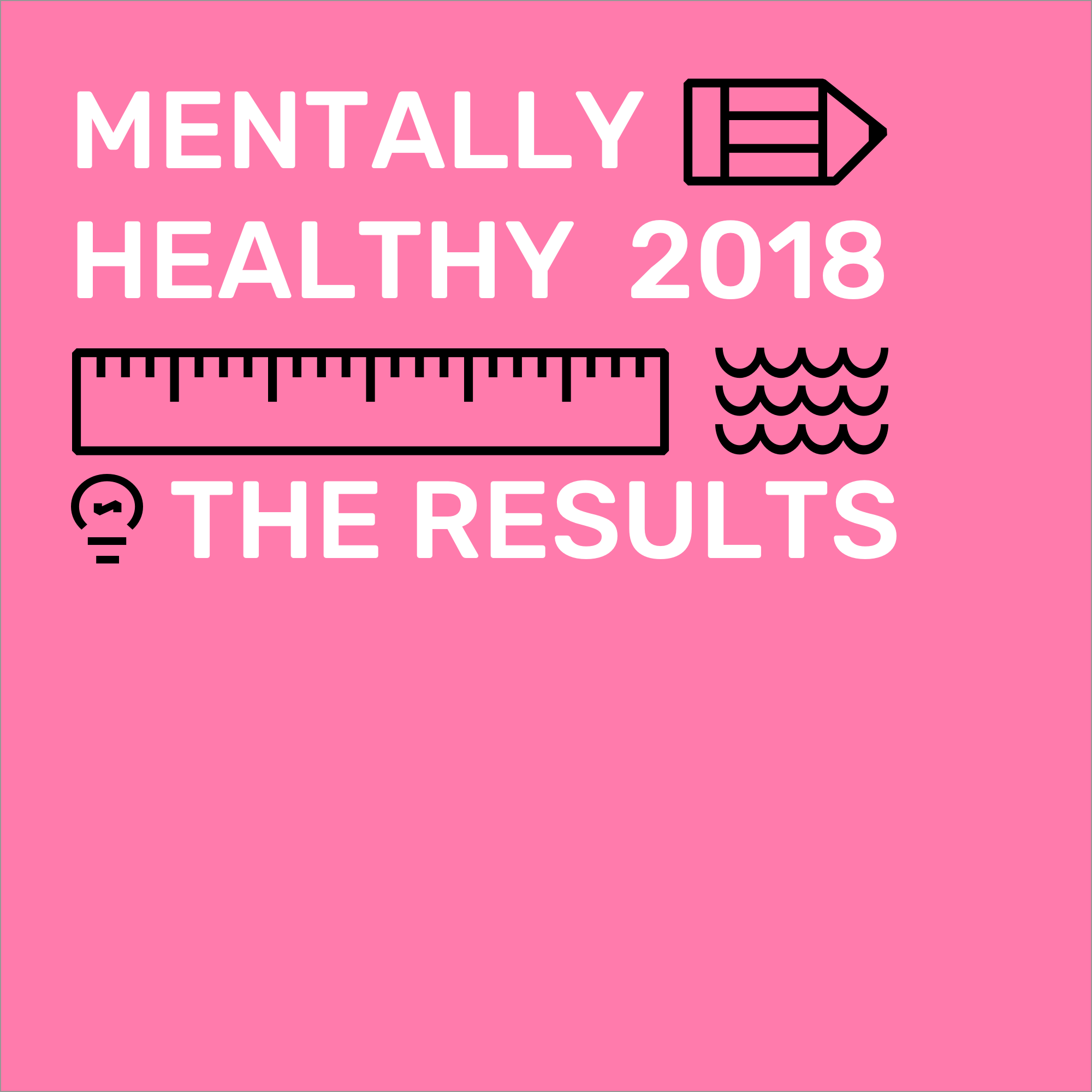
What NNC achievement are you most proud of?
We’ve kick started something big with the Mentally Healthy research. Mental Health is something that’s now moving from awareness to action in the creative industry. People are sharing stories, whole businesses are putting in initiatives to take more care of their people. I think by shining a light on the scale of the challenge we’ve helped plant a bomb under the problem.
Since the survey, the results have been picked up and discussed as far and wide as the US, UK, South Africa and around Europe. Industry news outlets have dedicated series’ of features, articles and podcasts to discussing the significance of the results.
We’ve put together an industry change group for the next steps to tackle the problem. It’s a mix of leaders and creatives from across very well-known creative, media and PR agencies as well as from the client side. We meet once a month (2 meetings so far) and are working on an initiative to specifically address the issue of stigma in the industry – more to come on that soon.
I’ve also been asked to come into agencies / events and discuss the findings with leaders and teams and home in on some of the issues that might be particularly relevant in different work cultures and environments.

What lies ahead for Never Not Creative?
We’re currently working on an initiative to make unpaid internships a thing of the past. For some, internships are an incredible experience. They’re a fast track into figuring out the industry, getting realistic experience, and getting that first invaluable paycheck as you start on the road to paying off university or design school debt.
Unfortunately, for many, that’s not the case. Since starting Never Not Creative, many people have reached out with stories of (what can only be called) exploitation. Unpaid roles, broken promises, non-existent support and guidance are common themes in many internship roles. The reality in many of these cases is that the employer is breaking the law. But, the intern is (understandably) too afraid to speak up and do something about it. Afraid of being black-listed, afraid of not being given another opportunity, afraid of standing up to a leader that they think they respect.
I’ve started mentoring a few people in these situations. Coaching them on how to have a rational conversation around the issue. On one level this can create big change for individuals, but I’m also looking at how we can scale this change industry-wide.
Recently, we launched a Google doc for the community to contribute to. It’s an idea generation document that will lead to a blueprint for a standardised paid internship guide. I like to think that the reason this situation exists is because people are too busy to do anything about it, or don’t really see it as a problem because they themselves did it when they were starting out, or just that they believe “everyone else” is doing it.
If we can make it easier for employers to run a paid internship program that has already been structured and laid out for them, then all they have to do is pick it up and run with it. Same for interns. If they want to approach a business they’d like to intern with, they can bring the guide / program with them and say, “hey I’ve got this internship program ready to go, can I come and intern with you?”
Sometimes I worry I can get a bit too idealist with this stuff, but you gotta shoot for the stars right? In fact, no. In this case, we’re actually just helping people avoid breaking the law!

How can we designers better support one-another as a community going forward? And more broadly what do you hope for our industries future?
To be honest, I think there’s a lot of change coming. It’s not necessarily by design, or down to the efforts of designers or our industry. You can already see significant generational change emerging. The people starting out in a career now seem to be much more aware of the people and world around them. They’re less motivated by money (not that they shouldn’t be paid a fair and competitive fee / salary), and generally seem more open to community and looking out for each other.
I think we need to recognise this and foster it. Create an industry that that rewards community initiatives and looking out for each other. Obviously competition will always exist. But that competition has been slowly eroding our sense of worth as an industry. Dropping prices, giving work away for free, working longer hours for no extra pay – basically, we have been devaluing ourselves for years in the belief that we’re going to win. Take a look at our industry now with lower margins, significant levels of poor mental health, smaller budgets to work with, and the uncertainty that A.I. and automation may bring, and it’s time to come together, not fracture further.
We’ve made a name and reputation for solving complex problems in the world. It’s about time we got together and had a crack at our own, to make sure that creativity is valued for future generations. If it isn’t the world is going to get pretty fu&%ing boring.

How can people get involved or connect with NNC?
Best place to start is to come and meet the community and join the Facebook group. Most things we’re up to are on the website and there’s also the podcast for discussion on important themes and challenges in the industry. You can usually find it by just searching on your podcast app or wherever you listen to podcasts. Of course we’re in all the usual social channels as @nvrnotcreative. You can also find me at @adwrighty.
Part of the problem right there . Try keeping track of all of that lot!
If you’re interested in doing more like running an event, helping out with social media, writing and sharing an article, being interviewed on the podcast I’d love to hear from anyone! A great example of this was our recent event in Christchurch. This isn’t MY community. I would love it to have a life of its own.
